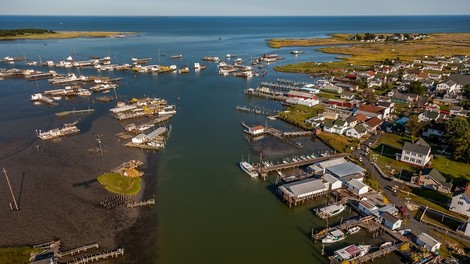Your podcast discovery platform
Curious minds select the most fascinating podcasts from around the world. Discover hand-piqd audio recommendations on your favorite topics.

piqer for: Climate and Environment Global finds Globalization and politics
I'm a freelance journalist, currently based in Madrid. I used to be a News Producer at CNBC in London before, but I thought a little bit more sun might do me good. Now I write for several news organizations, covering a range of topics, from Spanish politics and human rights for Deutsche Welle to climate change for La Marea.
Humans Of The Sinking Island Of Tangier
Tangier is a little island in the middle of Chesapeake Bay. It's the home of a small, conservative community and a mecca for soft shell crab lovers. It has one police officer, one post office (owned by the school's math teacher) and one Airbnb listing. It's also disappearing underwater.
Islands are sinking all around the world due to the consequences of climate change. Sea level rise, harsher storms, erosion and salt intrusion in freshwater reserves are pushing communities from their lands onto safer shores. Sometimes, these include whole countries, like Kiribati, whose Migration With Dignity programme was one of the first to acknowledge the full scale of the problem. And it's not just a future thing: Last year, the Caribbean island of Barbuda was rendered uninhabitable by hurricane Irma.
The tale is not new, but this was such a beautiful way to tell it that I had to bring it to piqd. The author, Carolyn Kormann, has done an excellent job at getting to know the characters of her story, particularly the mayor, James Eskridge, who adamantly denies that climate change has anything to do with it all, even when he's seen the land disappear and the water rise. Her respect in disagreement is an example for journalists everywhere. This is how climate denial should be reported when we're talking about the victims.
I wanted to see the high-water mark on the pilings under our feet, which Eskridge had claimed hadn’t changed since the shanty was built, in the early seventies. Eskridge hesitated. “Well, it’s underwater now,” he said. I raised an eyebrow. “Because of the higher tide.”
This feature is not only excellently written, but also informative and well built. I really liked the opening (and scary) photo and the slider. And I think it's good that it stays with the human story without going too much into the scientific angle, although it could benefit from a few more links for readers who'd like to know more about the processes it describes.
